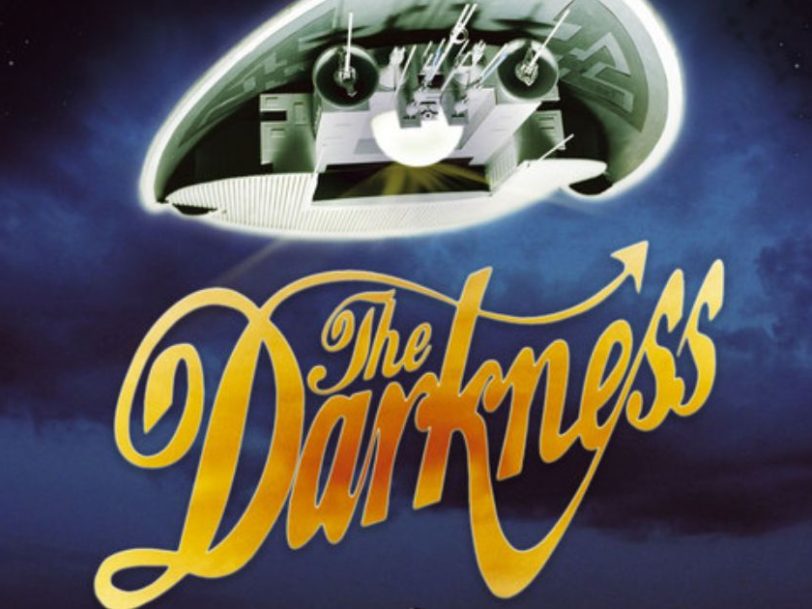With the charts dominated by pop divas and boy bands, the commercial prospects for rock’n’roll appeared quite bleak in 2003. The golden age of stadium-rock showmanship had long since passed, and it seemed as if we’d never again see the likes of a Freddie Mercury parading across the stage in royal regalia. If anything, it all felt rather old hat – perhaps a bit too clichéd for modern times. And yet, just when we least expected it, a Suffolk four-piece calling themselves The Darkness crashed into the public consciousness with their high-octane debut album, Permission To Land, establishing themselves as a glorious exception to the rule…
Listen to ‘Permission To Land’ here.
Arriving with thunderous charisma and unleashing a frenzied onslaught of electrifying guitar riffs, The Darkness arrived on the music scene like a flying saucer from a far-flung universe, dazzling fans with otherworldly sonic laser beams. Issued in the summer of 2003, Permission To Land rekindled the flames of 70s hard-rock and 80s hair metal, boldly proving that rock’n’roll was far from dead… rather, it was being reborn.
Fast-forward two decades, and Permission To Land… Again celebrates The Darkness’ debut album with a 4CD+DVD box set that takes fans behind the scenes of the band’s rise to fame. This spectacular release not only features the original album in all its glory, but also collects rare B-sides, unreleased demos and live recordings from the band’s legendary performances at London’s Astoria, Wembley Arena and Knebworth.
This is the story behind the wild ride of creativity, ambition and sheer madness that brought Permission To Land to life, lighting the fuse of a rock’n’roll revival that continues to burn brightly to this day…




